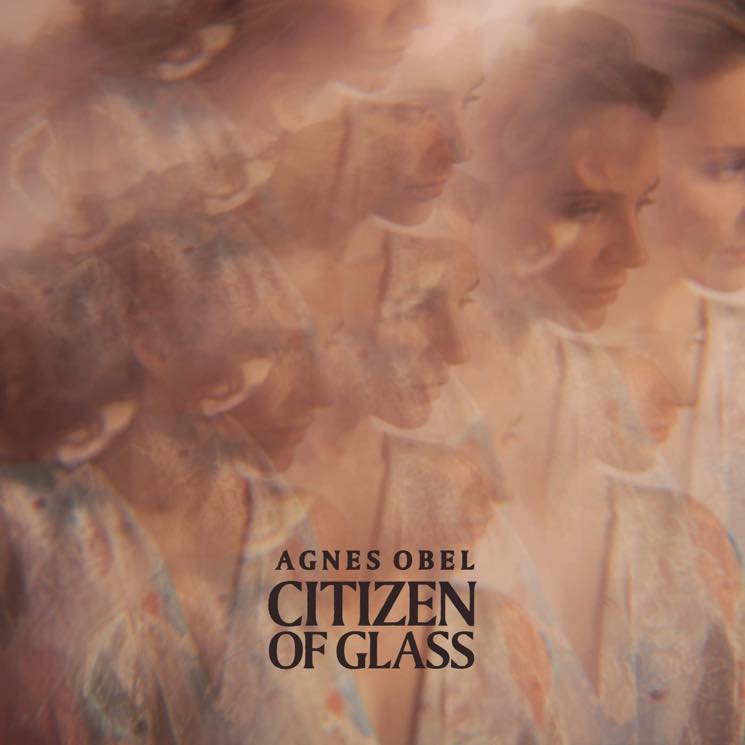Citizen of Glass, the third album from Danish-born, Berlin-based singer-songwriter Agnes Obel, takes its title from the German concept of the gläserner bürger, meaning "the glass citizen." It's a legal term that refers to privacy — if somebody is glass, every detail about them is known. Though like the material itself, a person can, of course, never be totally transparent. Like glass, one can be distorted, cracked or even a reflection of something else.
Obel uses this idea to create her most ambitious work to date, both conceptually and instrumentally. While 2010's Philharmonics and 2013's Aventine were applauded for the artist's piano work and the hushed beauty of her voice, here Obel complements her compositions with grandiose instrumentation, including violin, cello, spinet and the Trautonium. The additions are magnificent and never overwhelm, staying true to Obel's commitment to minimalism and forming a haunting, symphonic quality that partners with delicate vocals as they lead the way through the album.
With two instrumentals ("Red Virgin Soil" and "Grasshopper"), as well as rich timbres of cello, anticipatory violin climbs and evocative pangs of keys, Citizen of Glass feels cinematic, like the score of an old horror film — Obel even confronts a ghost on "Familiar," as she duets with herself as both a woman and a man caught up in a dangerous love affair. Her voice contorts to a brawny resonance and the warp is unexpected, at first disconcerting, but soon intoxicating. A similar effect is achieved, albeit more subtly, on "Stone," where Obel gradually rises to a celestial-pitched whisper, momentarily plunging into dark, throaty tones.
On the standout "Trojan Horses," all elements align. Like glass, Abel's voice is simultaneously fragile and full-bodied as it journeys through a myriad of pitches against the celeste. It works thematically, too — Obel sings that her bones are made of glass, see-through to the marrow. When she looks in the mirror, she sees her fate reflected back at her. In this transparency, is she a glass citizen?
The conclusion comes next on last track "Mary," where, alongside gentle washes of piano and elegiac "oohs," Obel sings of freeing herself from a secret and reminding the listener that glass can, like people, have many definitions. Reminiscent of her roots with an emphasis on keys and her own organ, it's a perfect finale to an exquisite work of art and a true masterpiece.
(PIAS)Obel uses this idea to create her most ambitious work to date, both conceptually and instrumentally. While 2010's Philharmonics and 2013's Aventine were applauded for the artist's piano work and the hushed beauty of her voice, here Obel complements her compositions with grandiose instrumentation, including violin, cello, spinet and the Trautonium. The additions are magnificent and never overwhelm, staying true to Obel's commitment to minimalism and forming a haunting, symphonic quality that partners with delicate vocals as they lead the way through the album.
With two instrumentals ("Red Virgin Soil" and "Grasshopper"), as well as rich timbres of cello, anticipatory violin climbs and evocative pangs of keys, Citizen of Glass feels cinematic, like the score of an old horror film — Obel even confronts a ghost on "Familiar," as she duets with herself as both a woman and a man caught up in a dangerous love affair. Her voice contorts to a brawny resonance and the warp is unexpected, at first disconcerting, but soon intoxicating. A similar effect is achieved, albeit more subtly, on "Stone," where Obel gradually rises to a celestial-pitched whisper, momentarily plunging into dark, throaty tones.
On the standout "Trojan Horses," all elements align. Like glass, Abel's voice is simultaneously fragile and full-bodied as it journeys through a myriad of pitches against the celeste. It works thematically, too — Obel sings that her bones are made of glass, see-through to the marrow. When she looks in the mirror, she sees her fate reflected back at her. In this transparency, is she a glass citizen?
The conclusion comes next on last track "Mary," where, alongside gentle washes of piano and elegiac "oohs," Obel sings of freeing herself from a secret and reminding the listener that glass can, like people, have many definitions. Reminiscent of her roots with an emphasis on keys and her own organ, it's a perfect finale to an exquisite work of art and a true masterpiece.
